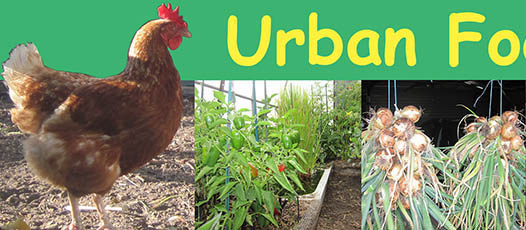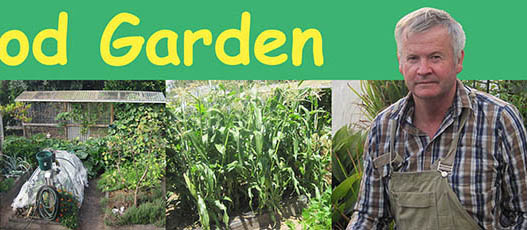chickens
chicken management
food not suitable for chickens
There are a number of plants and
foods that are poisonous to chickens and should not be fed to
them.
There is also a larger number of plants and food that are potentially unhealthy or even harmful to
chickens but can be fed to your chickens at
least in small doses.
poisonous plants
Below is a list of plants poisonous to chickens courtesy of
poultrykeeper.com.
The plants marked with an #
are plants that are found in my backyard.- Bloodroot
- Bull Nettle
- Bracken
- Bryony
- Carelessweed
- Castor Bean
- Cocklebur
- Curly Dock #
- Daffodil #
- Delphinium
- Elderberry
- Fern #
- Foxglove #
- Ground Ivy
- Hemlock
- Horse Chestnut
- Horse Radish
- Hyacinth #
- Hydrangea #
- Ivy #
- Laburnum (seed)
- Lamb's Quarters #
- Lantana
- Lily of the Valley
- Nightshade (Also called Deadly Nightshade) #
- Rhododendron #
- St. Johns Wort
- Tulip #
- Water Hemlock (Cicuta maculata L.)
- Yew
As poultrykeeper.com is a British website some of the plants on this list may not be found in Australia, plus there are undoubtedly other plants that could be added to this list depending on what part of the world you live in. To be absolutely sure which plants in your backyard are poisonous to your chickens you should consult a local poultry website or club.
potentially unhealthy food
and plants
There are numerous poultry websites with lists of food and plants
that they recommend you should not feed to your chickens. The problem is that
the lists offer conflicting information and often do not match my
own experiences of feeding my chickens. Below left is a
list compiled from a number of poultry websites of plants and foods
that they recommend you should not feed to your chickens . On the
right are my comments about these recommendations and whether I comply
with them or not.| PLANTS/FOODS | MY USAGE COMMENTS |
| AVOCADO | Yes. Mainly skins and pips. |
| CHOCOLATE | Never. |
| GARLIC | Rarely. Because of garlic disease risks I dispose of any rotten garlic in the garbage bin. The good garlic is all reserved for human consumption. |
| CITRUS FRUIT | Yes, but they never eat it. |
|
LAWN MOWER CLIPPINGS (Because of it going mouldy) |
Yes. Though my chickens usually only eat a small amount of it when it is very fresh. Once it gets mouldy they don't touch it. |
| RAW POTATOES AND POTATO SPROUTS | Never. Primarily because the potatoes are likely to sprout. |
| ROTTEN FOOD | Occasionally. But usually only in the form of mouldy bread. |
| RAW PEANUTS AND DRIED BEANS | Never. |
|
SOME GARDEN PLANT LEAVES
(Such as eggplant, peppers, tomatoes and potato leaves) |
Yes, except for potato leaves. My chickens simply ignore these leaves. |
|
RAW MEAT (Risk of disease) |
Yes. Usually fat offcuts or chicken skin, sometimes offal. Though I cut it up into small pieces so the chickens can easily eat it. My justification is that if the meat is coming from a clean source then why would it be carrying disease. |
| JUNK FOOD | Occasionally my partner brings home stale leftover sandwiches and cakes from work that the chickens greedily gobble up. For me feeding junk food to chickens is the same as for humans; in moderation it is fine, only in excess does it pose a health risk. |
| CRACKED
CORN (Aids in the raising of body temperature in hot weather) |
Yes. Cracked corn comes in the commercial mixed grain I feed my chickens and is not a problem in small doses. The same body temperature raising problem applies to sunflower seeds. |

The plastic compost bin that I use to compost poisonous plant
material such as deadly Nightshade, potato and Rhubarb leaves.
It is outside of my chicken run and always has a lid on it
so if a chicken escapes it cannot get at the compost inside.
So please take these comments with a grain of salt. All they show is that my somwhat lax approach to what I feed my chickens has worked for me, it may not work for you.
Also keep in mind that I have my main compost bins in the chicken run which I add almost all my green waste to, knowing that some of that material will not be eaten by my chickens. If my compost bins were not in the chicken run I would only be feeding my chickens food and plants that I knew they would eat.
For information about the benefits of having your compost bins in the chicken run see Compost Bins In The Chicken Run.
For poisonous plant material such as Deadly Nightshade, Rhubarb and potato leaves. I have a separate plastic compost bin outside of the chicken run that I use to compost such material.
the discerning chicken

Chickens picking over a compost bin containing a range of
palatable and unpalatable food and plant scraps. Chickens
are very capable of sorting out what is good and not good for
them to eat.
If my chickens are anything to go by it is probably because chickens are good at working out what they can and can't eat.
I think this ability is due to a discerning palate rather than trial and error on their behalf. If it was trial and error I would probably have lost some of my chickens to food poisoning before the rest got the message about a particular poisonous plant such as Deadly Nightshade.
This ability cannot be restricted to specific chicken breeds as over the years I have kept a number of different breeds. For more information on the breeds I have kept see Chicken Breeds I Have Kept. It also appears to have little to do to the ages of the chickens. Over the years I have raised numerous broods of chicks all of which had no problem working out what can and can't be eaten in the compost bins.
I am sure that the threat to chickens from food poisoning is a very real one but do not underestimate the ability of chickens to sort out what's good for them to eat themselves.

